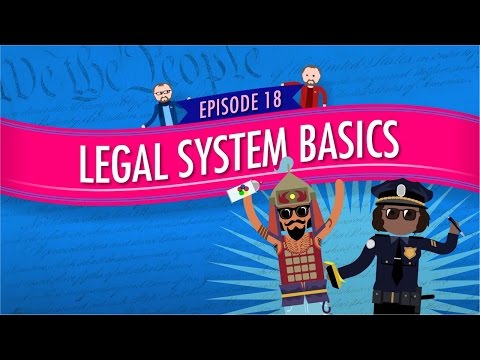
Welcome to this informative article on Understanding the Concept of Consumer Justice in the United States. In today’s complex world, where we are bombarded with countless products and services vying for our attention, it is crucial to understand our rights as consumers. This article aims to provide you with a comprehensive overview of consumer justice in the United States, shedding light on the legal protections available to you.
Before we delve into the intricacies of consumer justice, it is important to note that this article serves as a guide and should not be considered a substitute for professional legal advice. Laws and regulations vary from state to state, and it is always advisable to consult with an attorney or cross-reference information with official sources. With that said, let’s embark on our journey to unravel the concept of consumer justice.
What is Consumer Justice?
Consumer justice, in simple terms, refers to the fair treatment and protection of consumers in their interactions with businesses. It encompasses a range of legal principles and regulations that aim to ensure that consumers are not taken advantage of, misled, or harmed by unfair business practices. The goal is to level the playing field between consumers and businesses, empowering individuals to exercise their rights and seek redress when necessary.
📋 Content in this article
Key Principles of Consumer Justice
To better understand consumer justice, it is essential to familiarize ourselves with its key principles:
Understanding Consumer Law in the United States
Understanding Consumer Law in the United States
Consumer law is a branch of law that focuses on protecting the rights and interests of consumers in their interactions with businesses and organizations. It is designed to ensure fair and ethical practices in the marketplace and to provide remedies for consumers who have been harmed by deceptive or unfair practices.
Consumer law covers a wide range of issues, including product liability, deceptive advertising, unfair debt collection practices, and consumer contracts. It is an important area of law because it helps level the playing field between consumers and businesses, who often have greater resources and bargaining power.
Key Concepts in Consumer Law:
1. Consumer Rights: Consumers have certain fundamental rights that are protected by law. These include the right to be informed about the terms and conditions of a product or service, the right to choose from a variety of products and services, the right to safety and protection from harmful or defective products, and the right to fair treatment in sales and marketing practices.
2. Federal Trade Commission (FTC): The FTC is the primary federal agency responsible for enforcing consumer protection laws in the United States. It has the authority to investigate and prosecute businesses that engage in unfair or deceptive practices. The FTC also provides consumers with valuable resources and information to help them make informed decisions and protect their rights.
3. Fair Credit Reporting Act (FCRA): The FCRA is a federal law that regulates how credit reporting agencies collect, use, and disclose consumer credit information. It gives consumers the right to access their credit reports, dispute inaccurate information, and protect their privacy.
4. Consumer Product Safety Commission (CPSC): The CPSC is a federal agency that regulates the safety of consumer products in the United States. It sets safety standards for various products, conducts recalls when necessary, and provides information to consumers about potential hazards.
5. State Consumer Protection Laws: In addition to federal laws, each state has its own consumer protection laws that provide additional protections for consumers.
Understanding Consumer Protection Laws in the United States
Understanding Consumer Protection Laws in the United States
Consumer protection laws are a vital aspect of the legal system in the United States. These laws are designed to safeguard consumers from unfair practices and ensure their rights are protected in various transactions. Understanding consumer protection laws is essential for individuals and businesses alike, as it helps to create a fair and transparent market environment.
Key Points:
Examples:
Title: Understanding the Concept of Consumer Justice in the United States: A Reflection on Its Importance
Introduction:
Consumer justice, an integral part of the legal system in the United States, aims to ensure fair treatment, protection, and compensation for individuals who engage in commercial transactions. As an expert in US law, it is crucial for me to reflect on the significance of understanding and staying current on the concept of consumer justice. This article serves as a comprehensive overview of consumer justice, providing readers with valuable insights and emphasizing the need to verify and cross-reference the information presented.
1. Definition and Scope of Consumer Justice:
Consumer justice encompasses legal principles and regulations that safeguard consumers’ rights in various aspects of commerce, such as product safety, deceptive advertising, unfair business practices, and contractual disputes. It aims to balance the power dynamics between consumers and businesses, promoting fairness and accountability.
2. Laws and Agencies Protecting Consumer Rights:
The United States has established federal and state laws, as well as regulatory agencies, to protect consumer rights effectively. Some important federal laws include the Federal Trade Commission Act (FTCA), Consumer Product Safety Act (CPSA), Truth in Lending Act (TILA), and Fair Debt Collection Practices Act (FDCPA). Additionally, state laws often complement these federal statutes with additional protections tailored to local needs.
3. The Role of Regulatory Agencies:
Regulatory agencies play a crucial role in enforcing consumer protection laws. The Federal Trade Commission (FTC) is the primary federal agency responsible for preventing fraudulent, deceptive, and unfair business practices. Other significant agencies include the Consumer Product Safety Commission (CPSC), the Food and Drug Administration (FDA), and the Consumer Financial Protection Bureau (CFPB).
4. Importance of Staying Current on Consumer Justice:
Staying informed about consumer justice is vital for several reasons:
a. Protection of Individual Rights: Understanding consumer rights allows individuals to navigate transactions confidently, ensuring they are treated fairly and protected against deceptive practices.
b.
